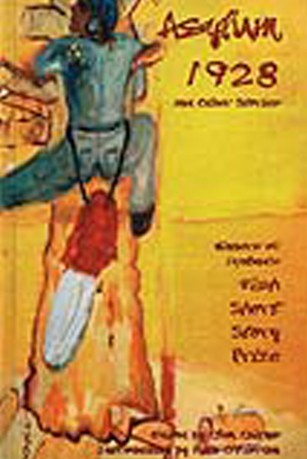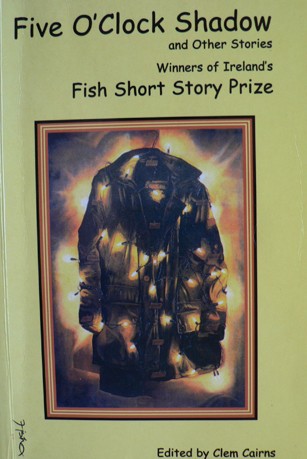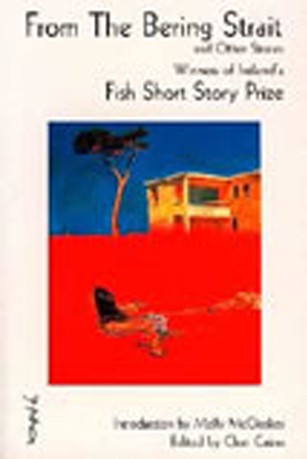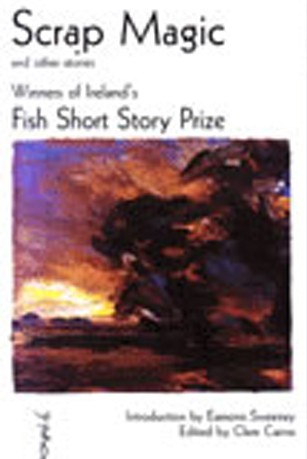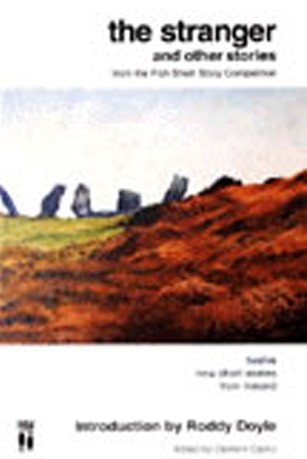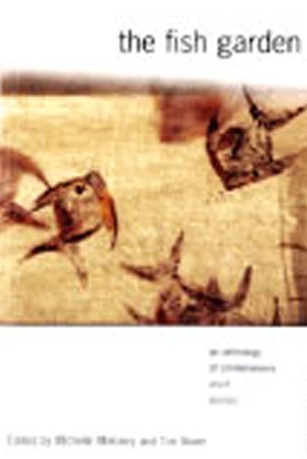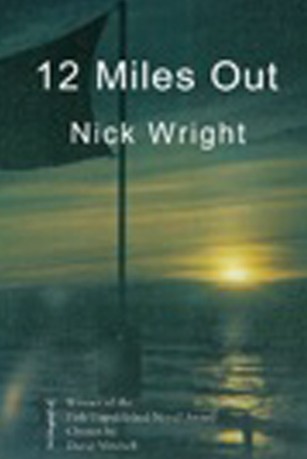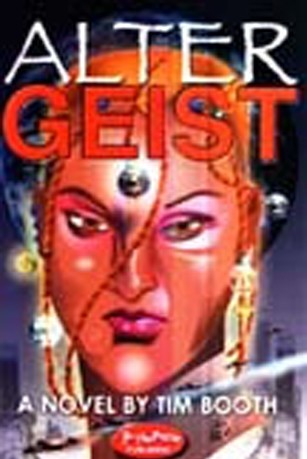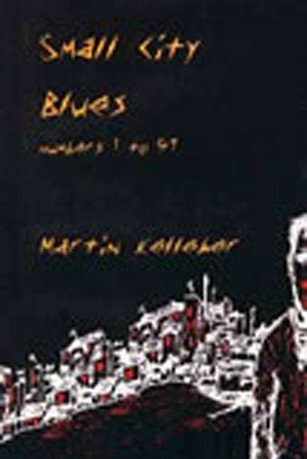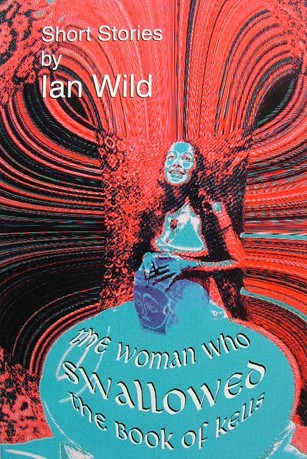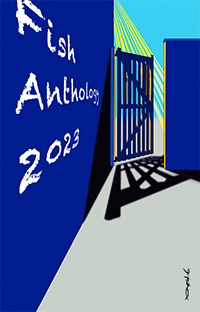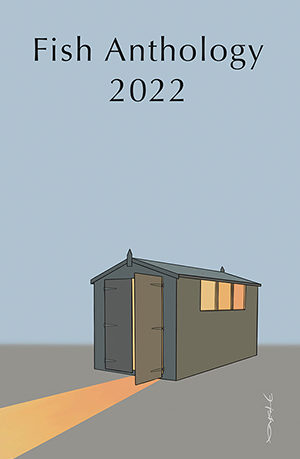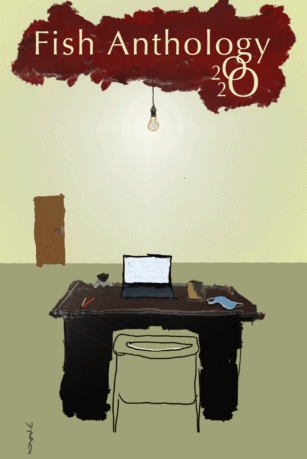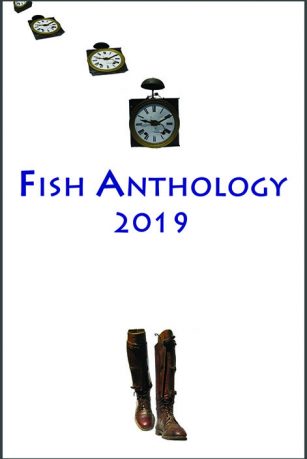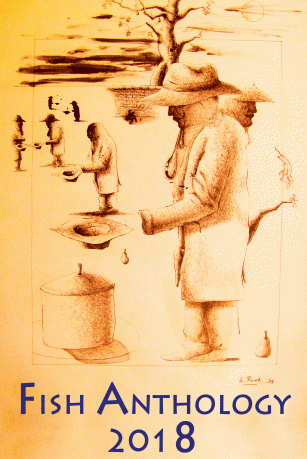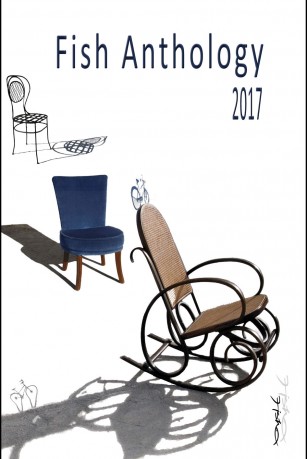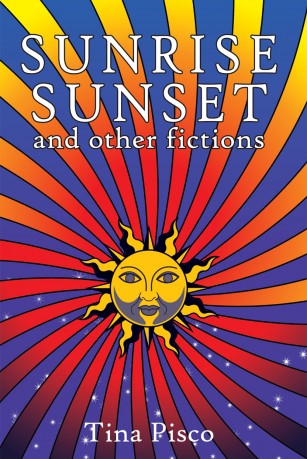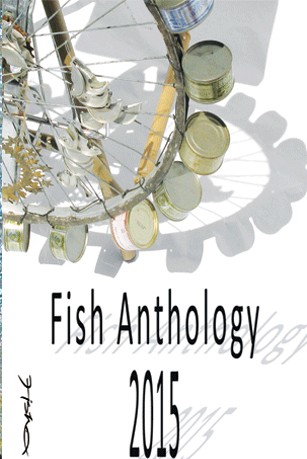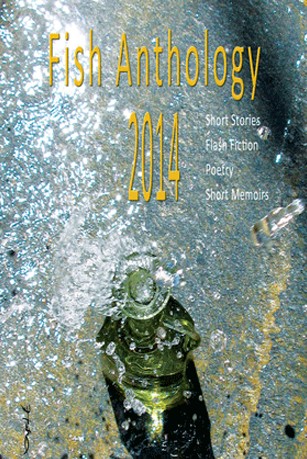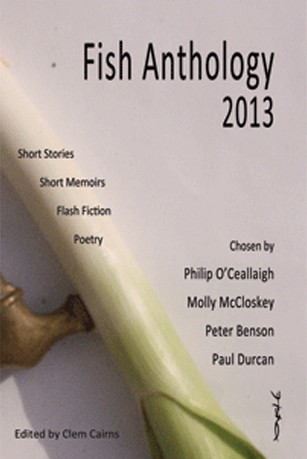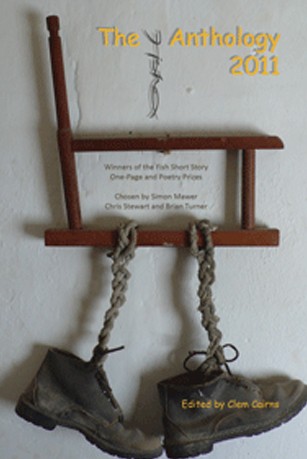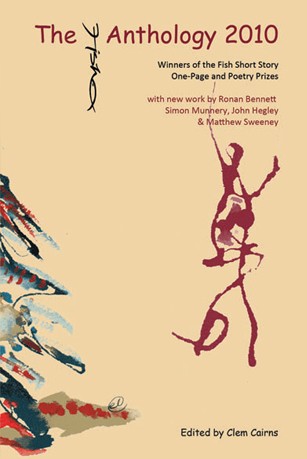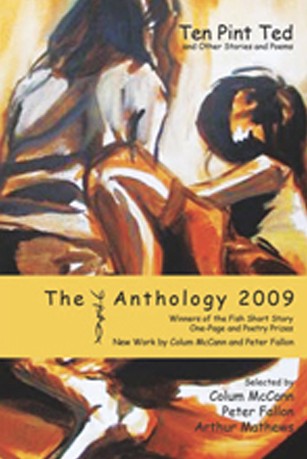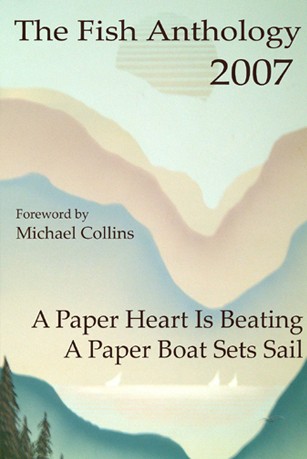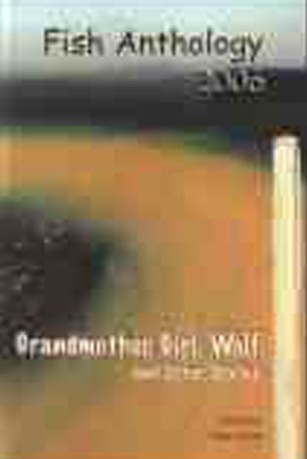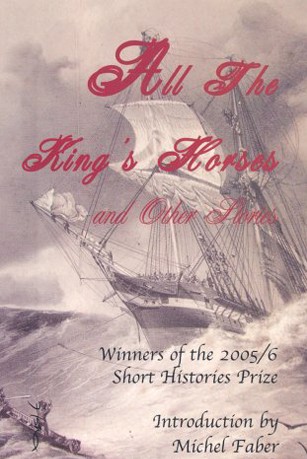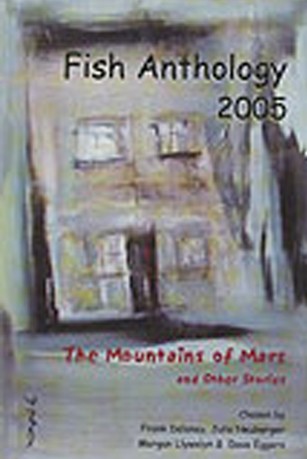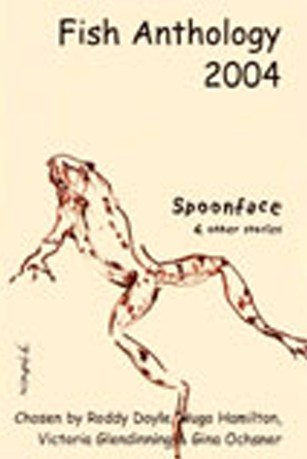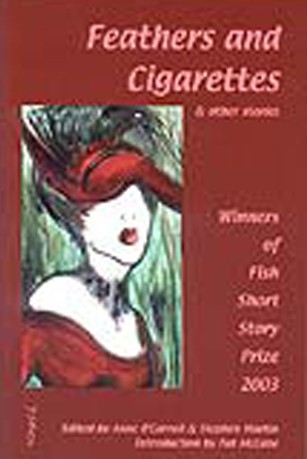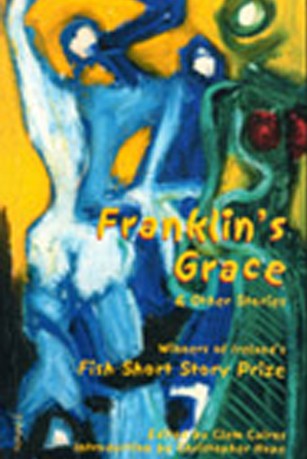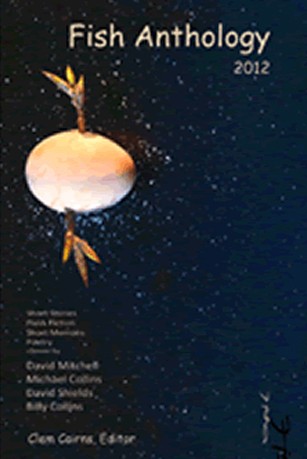
Fish Anthology 2012
ISBN: 978-0-9562721-3-3
This anthology contains the winning stories and poems from Fish Publishing’s four annual competitions – The Fish Short Story Prize, The Fish Flash Fiction Prize, The Fish Short Memoir Prize and The Fish Poetry Prize.
Judges were David Mitchell, Michael Collins, David Shields and Billy Collins respectively.
This is a brave, original collection – the poignancy of short memoir is captured here, true-life sadness, grief, struggle and redemption, affirming the place of brief memoir as an emerging genre of real importance. The poems are shining gems, and it is interesting that some of them are from poets whose first language is not english. The Flash Fiction is funny, whacky, surprising, devastating. It achieves the highest calling of Flash, giving a complete story in the difficult discipline of a 300 word ceiling. The short stories are remarkable for the quality of their story-telling – the worlds they invite us to enter and how they convince us with the power of the writing.
Listed below you will find all authors and poets published in this anthology along with the titles of their work.
Read the winning short story – Roommates by Linda Heuring, the winning flash fiction story Serene Suburban Sunday, Spring Street by John Mulligan, the winning short memoir Music Today? by Stephen Policoff and a poem – What Remains by Martin Childs
A poem With the Sails Unfurled by Brian Turner. (A cento, containing lines from the poems published in this Anthology).
A poem in st brendan’s church, bantry by Ken Taylor was written about the launch of the 2012 Fish Anthology
Contents
SHORT STORIES |
||||
|
Roommates |
Linda Heuring |
|||
|
Takeover |
Jonathan Carr |
|||
|
Constance |
Sheena Wilkinson |
|||
|
Wrong Whiskey |
Fiona O’Rourke |
|||
|
The Jailhouse Gourmet |
Roger Jones |
|||
|
Money by Martin Amis |
Peter Slater |
|||
|
Hide and Seek |
Iris Ansell |
|||
|
The Bit From Her Mouth |
Terry Lynch |
|||
|
Growing Pains |
Atossa Shafaie |
|||
|
First Mate |
Daniel Degnan |
|||
FLASH FICTION |
||||
|
Serene Suburban Sunday |
John Mulligan |
|||
|
Hard Times 2 |
Mark Fiddes |
|||
|
Give a Sucker an Even Break |
John Mulligan |
|||
|
Birthday Letters |
Jennifer Cairns |
|||
|
Ferrets |
Amalia Burne |
|||
|
To Rhonda |
Sean Murphy |
|||
|
Neighbourhood Watch |
Lezanne Clannachan |
|||
|
The Taste of Death |
Mo Loughlin |
|||
|
My Bag |
Fiona Price |
|||
|
In the Beginning |
Danielle McLaughlin |
|||
SHORT MEMOIRS |
|
|
Music Today? |
Stephen Policoff |
|
Upstairs at Ten |
Frank Ortega |
|
Surprise |
Margo Barnes |
|
Thirteen Scenes (and a Few Jokes) |
Eufemia Fantetti |
|
Where Gods Rush In … |
Donna Ward |
|
Rashers and Rifles |
Seamus Scanlon |
|
Bird Girl |
Orlaine McDonald |
|
Many Hats |
Myrlin A Hermes |
|
The ABC’s |
Sandra Cobrin |
|
Wondering Who You Are |
Sonya Lea |
POETRY |
|
|
What Remains |
Martin Childs |
|
Before Flight |
Michael Ray |
|
Still-Life |
Laila Farnes |
|
Sonnet 18.0 |
Alexandra Lamb |
|
Dissecting Cod’s Eye Day |
Nina E Larsen |
|
Masterclass |
Fiona Lynch |
|
Pink Sheep |
Cassandra Keen |
|
A Sunday Evening 1969 |
Martin Childs |
|
The Cruelest Jokes |
Noah Blaustein |
|
Enclosed |
Jane Clarke |
|
Then, Again |
Mary-Jane Holmes |
Roommates
by Linda Heuring
OB arrived mid-semester carrying a ragged black guitar case with a BLAME GE sticker on the side, an overstuffed backpack, and a mesh onion bag full of hotel soaps. I got back from lunch and there he was, sitting on the empty bed in my room.
He waved a yellow room assignment sheet, and I stuck out my hand to shake.
“I’m Brad,” I told him.
It took him a few seconds to transfer the paper to his other hand, an awkward pause I’d soon come to recognize.
“OB.” He swallowed the letters as he spoke. He folded the yellow paper into matchbook size and dropped it on the bare bed with at least a dozen others of similar configuration. He began to sort them into piles.
“Obi? Like in Obi-Won Kenobi?” I asked.
He didn’t look up. “Yeah, right. Or Opie from ‘Andy Griffith.’ Whatever.”
“OB as in what, then? Obstetrician?”
He dipped his head and gave it a quick shake to the side to get his blonde hair out of his eyes. He stared at my face.
“Oliver Baxter. Tell me you wouldn’t be OB?” He went back to sorting.
“Yeah, man. I’d be OB.”
He unzipped the backpack and upended it on the bed. I watched him unpack. He scooped up a slew of folded papers and dumped them in his middle desk drawer. His clothes were all black, even his underwear, and he put each piece away one at a time, as if he had to think about it. He had three books with homemade brown paper covers that he stashed on the shelf of his desk and a dozen or so spiral notebooks with inked warnings on the outside, like “Read This and Die” and “Keep Out. This Means You.”
“Journals?” I asked him.
“What?” he said.
“The notebooks,” I nodded toward his desk. “You keep a journal? I tried it, but I couldn’t stay awake.”
“Stories,” he said.
“You’re a writer? Cool,” I said. “So’s my girlfriend.”
“You?” he said.
“History and Phys ed. Secondary ed.”
OB opened his guitar case. His guitar looked like a yellow mummy, tightly wrapped in cloth that turned out to be his sheets. He examined the instrument for damage, pinged each string, then returned it to the case. He was making his bed, checking each corner twice, when a football came flying through the open door, bounced, and rolled end-to-end toward his feet. My friends Zebo and Henry followed it in and headed for their usual spot on the spare bed when they ran smack into OB. OB turned on a dime, his hands up in a boxer’s pose.
“Whoa,” Zebo said. “New occupant.” He stuck out his hand.
“Zebo,” he said to OB. “I’m down the hall. This ugly one here,” he pointed at Henry, “is my roommate Henry. Like Indiana Jones only not as lucky.”
Henry stuck out his hand, too.
“Meet my new roommate, OB,” I said.
OB lowered one arm, then the other, but his feet were still planted. He looked from Zebo to Henry and back to Zebo, and finally extended a hand to Zebo, pumping two firm shakes. He repeated the process with Henry.
“We’re late for a scrimmage,” Zebo said. “Want to join us?”
OB looked to me, not for approval or an invitation, but as if he expected me to handle his regrets. He barely shook his head; it was more of a wobble.
“Let the guy get settled in before you start breaking bones,” I said. I picked up the ball and tossed it from hand to hand.
OB turned back to his sheets, pulling them so tight you could see the design in the mattress pad. As I went out the door, I saw OB put the bag of soaps into his pillowcase.
It didn’t take long for word to spread that mine wasn’t the party room anymore. OB wasn’t just quiet, it was like he wasn’t even there except for that constant low-volume buzz from his headphones. He had jack adapters to switch from his guitar to his iPod without uncovering his ears. He was always plugged in to something.
“You think he takes them off to shower?” Zebo said. We were standing in line for lunch.
I had to think about it for a minute.
“I don’t think I’ve ever seen him in the shower,” I said. When I said it there was a twinge, just a little one, in the pit of my stomach, like I had betrayed some confidence.
“Christ, doesn’t he stink?” Zebo said.
I shrugged. Actually, our room smelled better than my room had. Since it wasn’t the party room anymore, it smelled less like old pizza and beer and more like, I don’t know, clean, like a bedroom, like Candice’s dorm room. I was spending a lot more time in her room since OB arrived, but that didn’t stop her from dropping in on OB and me as if our room was just an annex of her own.
“Do you think it smells in here?” I asked her that afternoon when she stopped in after class.
Candice sniffed the air like a bird dog.
“Your Converses,” she said, pointing at the high tops I had taken off and thrown in the corner.
“Nothing else?”
Candice sniffed again, then buried her face in my neck.
“Just your pheromones,” she said.
I checked my watch to see how much time we had before OB came back from class. Not long enough. I swung my feet off the bed and got us some bottled water from the little fridge that used to be full of beer. OB opened the door just when I cracked the plastic seal around the lid.
He nodded at me, smiled at Candice, and dropped a Fed-X box and his book bag on the bed. He pulled out a handful of folded notes from the pockets of his jeans and arranged them end to end on the edge of his desk like the cars of a model train.
“Goodies from home?” I asked.
“Computer,” OB said. He pulled the tab on the package and slid a MacBook out onto his bed. As he sorted through the packaging, he paused, as if bewildered by the cords and accessories, but then plugged in each piece without reading the directions. He did that a lot, just froze. Not like a robot, more like an old man lost in space, or time. OB punched a few keys and let it run. He nodded to us again and left.
“He’s brilliant, you know,” Candice said. They were in a writing class together. “He read a story today that knocked my socks off.” She wiggled her bare toes in her flip flops, as if to prove her point.
“I didn’t think he had it in him,” I said.
“He’s brilliant,” Candice repeated.
“He’s strange,” I said. In our two years together, she’d never called me brilliant.
“We all are,” she said. I didn’t know if she meant all writers, or all humans.
“Speak for yourself,” I said, flashing her a big smile.
“I was,” she said, narrowing her eyes just a bit. I guess she meant writers after all.
Regardless of his prowess with the pen, OB wasn’t much with the spoken word. After three weeks I knew less about him than I did the dorm’s receptionist. It was as if he had just conjured himself out of thin air. Except for that initial backpack, the rest of his stuff came by delivery service, a piece at a time, all new.
“So what gives with the Goth?” Zebo said. We were stretching against the wall, waiting for our racquetball court to open up.
“Just because he wears black doesn’t mean he’s a Goth,” I said. “You see any nail polish or lipstick?”
“He’s definitely Abby Normal. I couldn’t live with him.”
The court smelled like sweat and rubber, and my shoes squeaked against the maple boards. Zebo did a victory dance when I slid across the floor on my belly only to miss a low shot on the front wall. I slammed into the wall and heard the crunch as my finger jammed the drywall. He strummed his racquet like a guitar, and I couldn’t help but compare his sausage-like fingers to the thin bones of OB’s hands caressing his Fender. I shook my head, as if, like an upside down etch-a-sketch, I could get a clean slate. I pulled on my jammed finger as Zebo served again.
Candice was in the room when I got back, hunched over OB’s computer at his desk. Candice worked the mouse, and OB watched her face as she read. I knew that look. It was the same one I wore when I watched Candice do anything, waiting for her eyes to light up or her brow to furrow, or the pale skin around her freckles to flush. They were sharing his chair, one skinny cheek from each of them meeting in the middle, with not that much overhang. I walked over and kissed her on the back of the neck, and she held up one finger, like “wait,” and she kept reading. I sat on my bed and made a lot of noise opening my mail then laughed to myself a couple of times. They didn’t move. Finally I saw Candice get to the end. She dropped her hands to her lap and just sat there. When she turned sideways to look at OB, I could see tears.
“I can’t tell you how moved I was,” Candice said.
“Did the ending work? Was it too quick?” OB said. His headphones were around his neck.
“It was perfect,” she said, wiping her face with the hem of her shirt. I got a peek at the bottom of her bra.
“Brilliant,” she said.
So, was that her word now? Brilliant?
Candice got up, stretched, and rubbed her rear end.
“My butt went to sleep,” she said to me. “Kiss it and make it better?”
Another day I’d have taken that as an invitation. Today it felt more like “kiss my ass.”
“Not without a tetanus shot,” I said.
Candice parted her lips and frowned at me.
“And your problem is …” she said.
“No problems here,” I said.
She gave me that stare again, like I was the one who had done something wrong, and she grabbed her backpack off my bed and slung it over one shoulder.
“Later,” she said. She waved her hand in front of OB, who was now propped against his headboard, typing away, headphones securely in place.
“See you in class,” she said. He smiled. She smiled. She left.
After dinner OB stretched out on his bed and read Kafka, and I waited around for Candice to study with me like she did most nights. At nine, I figured she wasn’t going to show. I carried my history textbook down the hall to Zebo and Henry’s. They had a twelve-pack and were watching The Civil War by Ken Burns on DVD.
“Help yourself,” Zebo pointed to the beer carton on the floor. It was warm, but Zebo swore the Europeans liked lukewarm beer. For some reason I doubt that included Old Milwaukee. I passed.
“Think we have time to watch all nine episodes before the test tomorrow?” Henry said. He looked at the DVD slipcase. “We’re on number three.”
I shook my head. “You don’t think it’s going to be that bad, do you?” I said. “I mean, it’s not like it’s the mid-term.”
“My sister took it last year, and she said the tests get worse after the mid-term,” Zebo said. “Dates, times, names, battlefields. You name it. And he expects a brilliant essay on top of it all.”
My stomach felt a little queasy. Brilliant. It reminded me of the spat with Candice. Maybe the beer wasn’t a bad idea after all. I opened a warm can and opened my throat. The faster it went down the less I’d taste.
“Where’s Candice?” Henry said.
I shrugged.
Four beers and three hours later I lurched toward bed. OB sat cross -legged on his bedspread, the glow from his computer screen lighting him up like a spook house ghoul.
“Don’t you ever turn that damn thing off?” I said. I switched on my desk light. “How am I supposed to sleep?”
“Sorry,” OB said. He closed the laptop and put on his sandals. He adjusted the straps individually. I rolled onto my back and rubbed my feet together, trying to get my high-tops off without untying them. I rubbed so hard I thought I smelled burning rubber. I was about to get up for scissors to cut the laces when OB reached for one foot and pinned it to the bed.
“You’re drunk,” he said, untying my laces.
“No shit, Sherlock,” I said. “What was your first clue?”
I sat up on my elbows and took off my shoes. I threw one, then the other, against the far wall. OB put his laptop in his book bag and left. When I woke up, Zebo had his hands on my shoulders, bouncing me on my own bed.
“It’s 20 ’til,” he said. “You planning on taking the test?”
My tongue was stuck to my soft palate, which is all that kept me from cursing. Good thing I slept in my clothes. I knocked two Tic Tacs out of the box for breakfast. The test was a mother. I told myself it would have been the same with or without the beer, but I really couldn’t be sure. After, I saw OB coming up the steps.
“About last night,” I said.
He didn’t say anything.
“You know,” I said.
He nodded and hunched his shoulders to reposition his backpack.
I gave him what I hoped was a sheepish smile. I almost heard the “baa” myself. He nodded again and walked on. What was I supposed to get from that? Probably that all was straight. No problem.
Zebo had a different theory. He stopped in our room after dinner.
“He’s a psycho, man. I mean, look.” Zebo pointed at OB’s desk with everything lined up according to size. He yanked open the middle drawer. “And all these little papers folded like notes from junior high. What’s with that?”
He started unfolding one, and I stepped in.
“Give him a break,” I said. “I wouldn’t go through your personal stuff.”
“I don’t HAVE any personal stuff,” Zebo said. “What part of communal living don’t you understand?”
I grabbed the paper, and a section ripped off. Zebo raised his hands and backed off. I refolded it as best I could.
He stretched out on OB’s bed, and the next thing I knew he pulled the bag of hotel soap from the pillowcase. He dangled it by the twist tie closure.
Inside there dozens of individually wrapped soaps: square cardboard boxes from the fancier hotels, the run-of-the-mill rectangular bars in yellowed paper, translucent pastel, egg-shaped soaps, and round ones wrapped in oatmeal-patterned tissue. Zebo pushed the soaps around inside the bag to read the labels. Someone had scrawled dates and places on the wrappers. Las Vegas. Cleveland. Chicago. Pittsburgh.
“For someone who doesn’t shower, he’s got a load of soap,” Zebo said. “It looks like he cataloged them.”
“Put it back,” I said.
“What are you defending him for?” Zebo said.
“We live together,” I said.
“He came from somewhere, he can go somewhere else,” Zebo said. “Where was he before this, anyway?”
I shrugged.
“He could have been anywhere. In a nut house. In prison,” Zebo said. “His picture could be up in the post office right now.”
“For what? Stealing hotel soaps?” I said.
Zebo laughed and stuffed the soap back inside OB’s pillowcase, just as Candice walked in.
“Where were you last night?” Zebo said to her. “He came slumming without you.”
Candice tossed her hair. “Library,” she said. Like that was a good enough explanation. “Have you seen OB?”
“Not since my 11 o’clock,” I said. “Why?”
“I promised to bring him something to read,” she said. She waved a stapled paper.
“I can give it to him,” I said.
“I need to give him the background first,” she said. She stuffed it into her backpack. She didn’t sit down.
Zebo gave me a look and shuffled out.
“I brought some extra rolls from dinner for our snack for later,” I said. I pointed at a plate covered with a brown paper napkin. “I’ve got some cheese in the fridge.”
“I can’t stay,” she said. “That paper on Bierce is due Monday, and I need something a little extra to pull off what I want to do. A couple of books in Spanish I ordered on loan are in at the library.”
“I thought he was an American,” I said.
“He disappeared in Mexico, and his body was never found.”
“What are you doing, trying to solve the mystery?”
“I’m more interested in his motive for going,” she said. She put her hand on the doorknob.
“Maybe later,” I said. I gave her a peck on the cheek.
I sprawled out on my bed with Crime and Punishment. It was one of those books I just couldn’t get into. I didn’t read it in high school; I faked my way through the exam with the cliff notes. Now here it was on my syllabus for sociology. I couldn’t even keep the characters straight. I wondered if Dostoevsky’s life was like that. I’d read that just like his main character, Dostoevsky was hurting for money. Candice said most writers, especially in the beginning, write about things that happened to them, but they have to change it a bit so they don’t get sued. She said writers write about what they know. What Dostoevsky knew, though, was boring. If he was supposed to be such a brilliant writer, why couldn’t I read more than a page before nodding off? I wondered where my brilliant room mate was. And what his writing was like, besides just being so damned brilliant.
Zebo had a point. I didn’t know much about OB. When he got back tonight, I was going to get a few answers.
I must have dozed off, because I woke up with one of those snorts that make you think you were disturbed by your own snoring. OB was at his desk with his laptop and headphones. I tried to read over his shoulder. He slammed the cover down on the laptop and spun in his seat.
“Oh,” he said, his eyes focusing on mine. “It’s you.”
“What you working on?” I said.
“A story,” he said.
“What’s it about?”
“Hemingway once said that the better the writer, the less they’ll talk about their own writing,” he said. He smiled.
“So you’re fucking Hemingway?” I said.
“No,” he said. He looked down at his hands and his bangs made a screen over his face. He flipped them to the side and stared at me.
“If I talk about what I’m writing, I can’t finish it. It’s like,” he sighed. “It’s like if I say it, I can’t write it.” He looked up at me and for a second I saw a kid I’d coached in Little League, a skinny white-haired boy with skin so pale his veins showed through, standing there with his batting helmet falling over one ear. The kid with “easy target” embroidered on his sleeve in invisible thread.
My mouth got a little dry. I was being too hard on him. Candice and I had been together a long time. He wasn’t trying to weasel in.
“I must have gotten up on the wrong side of the bed,” I said. “I didn’t mean …” Here for the second time today I was apologizing to him. I opened the door to the fridge.
“Cheese?” I pulled out a round of red wax.
He shook his head. I cut myself a chunk and sat back on his bed.
“Got anything that’s finished I can read? Candice says you’re brilliant.” I chugged a bottled water. His face was red and distorted through the plastic.
“That was nice of her,” he said. “She’s the one with the real talent.”
He flipped his bangs to the side again.
“I could print you out something later,” he said, “if you’re really interested.”
He looked at his watch, then stuffed his computer in his backpack. “Seminar,” he said, closing the door behind him.
I spent the evening with the guys at the Blue Line Tap, a bar some former student from Chicago opened just off campus. He was known to be a little blind when it came to scrutinizing IDs, as long as you didn’t cause any trouble and paid for your drinks in cash. We played pool until we couldn’t tell the cue ball from the two ball and were shadowboxing along the sidewalk on the way back when I stopped in my tracks in front of the library. There, lit up like the celebrities on Hollywood Squares, Candice and OB sat side by side at a study table, their heads so close together their hair could have intertwined with static electricity.
“Hey, isn’t that Candice and the Goth?” Zebo said.
Henry punched him.
“Ow,” Zebo said, punching him back.
The two guys rolled in the grass for a minute or so, while I watched OB whisper and Candice laugh and throw her head back like she does to expose her throat. She looked as pale as him in the fluorescent lights. I heard a click, click, and the sprinkler heads poked up out of the library lawn, throwing water high toward the windows and soaking Zebo and Henry. Candice got up and stood by the window, and OB followed. He put his hand on her shoulder. I had seen enough.
“Let’s get out of here,” I said, breaking into a jog. I saw Candice slipping over the border into Mexico with OB at her side. Holed up in some adobe hut writing their stories together. I nearly ran into a parked car, and Zebo grabbed me.
“Straight ahead,” he said, putting his arm around my shoulder. “Follow the yellow brick road.”
“It’s a sidewalk,” Henry said. He took my other side, and the three of us made it back to the dorm with the lurching gait of drunken athletes. We threw ourselves on the floor of my room. They passed my bath towel between them.
“Want us to break his legs?” Henry said.
“Maybe just one,” I said.
“Stuff him in the trunk of a car,” Zebo said. “If we had a car.”
“We could stuff him in the closet,” I said.
“He might like that,” Henry said. “Don’t Goths like to sleep in coffins?”
“I told you he’s not a Goth,” I said.
“Then what is he?” Henry said. He picked up the emergency flashlight my mom made me bring to school and spun the handle to charge it. It sounded like a toy car revving on the rug. He stuck it under his chin.
“I am vampire,” he said like a cartoon ghoul. “I vant to drink your blood.”
“And where did he come from?” Zebo said. He crawled over to OB’s desk and jerked the drawer open. The whole thing fell out on the floor, the notebooks, and the dozens of folded notes. Zebo threw a handful of notes to Henry.
“Open ’em up. See what he’s hiding.”
Henry unfolded the first note. It was the syllabus for an art history class. The second one was a flyer for an open mic night at a campus bookstore.
“This is just crap,” he said. “Regular stuff.”
“Keep going,” Zebo said. He was going through the books now. Holding them by their spines and fanning them, looking for anything loose inside that might fall out. A bookmark fluttered to the floor.
Zebo nearly hit me in the head with a notebook he sailed across the room.
“Brad. Check out the notebooks.”
The first one was mostly drawings, like comics, snatches of dialogue and lots of swords and fire, with characters taken from video games. OB had marked the notebooks with Roman numerals. Number II was more of the same.
“He was obsessed with Final Fantasy,” I said.
“Who wasn’t?” Henry said. He unfolded another note.
One notebook was filled with yellow and black circles with smiley or frowny faces filled in. Each page had one row of faces in various combinations of smiles and frowns. This was just stupid. Why would he do that? Zebo was right. OB must be psycho.
I grabbed a later volume and saw OB’s focus had changed. Now he was obsessed with a girl. There were poems, no, more like song lyrics because there were chord letters written above them. Looked like a lot of lost love stuff.
“Listen to this,” I said. “Bring me down, down, to your level, open the gates of hell. Wrap me in lava if not your arms …”
“What shit!” Zebo said.
“This, too,” Henry said. He had a pile of paper now, its layers crinkled like baklava.
“There’s only one place to put shit,” Zebo said. He scooped up the papers from the floor and ran across the hall to the bathroom. We followed. Zebo shredded a handful of notes into a toilet bowl and hit the flush handle with his foot.
“To the sewers!” he cheered.
“To the sewers!” we repeated, almost in unison. They tore notes until there were none, then helped me with the notebooks, ripping the pages from the bindings until the metal spirals stretched and hummed, warm to the touch. When the toilets got sluggish, Henry broke into the janitor’s closet, retrieving a plunger he wielded like a javelin, churning the water with suction. One of the freshmen opened the door. Zebo growled and chased the kid out into the hall. When Zebo came back in, he had OB’s bag of soaps.
“Time to clean up,” he said. He turned the water on in all the lavatories and unwrapped a bar of soap.
“Excalibur, May 28,” he said. He tossed the bar into the sink. It was round and white, etched with the outline of a castle. One by one they hit the porcelain, and the water that splashed off the bars onto the floor mingled with the papery swill from the overflowing toilets.
I leaned back against the wall. I had one more notebook. The tile was cool through my T-shirt. It felt like those big ceramic squares were my personal kryptonite, draining all the energy from my body, leaving me with a churning stomach and a light head. I slid down to the floor and sat with my legs stretched out in front of me, the notebook in my lap. I held it close to my eyes and tried to focus.
The top page had several titles written in. “The Fire Last Time,” “Brand Identity,” and “Blair’s Kangaroo,” were lightly crossed out. “One Bare Spot” was circled.
“It’s funny what you grab in a fire,” I read. “Instead of money or your winter coat, things that might mean safety or survival, your brain goes on some kind of autopilot, grabbing what at first may seem like random objects, which later prove to be more, much more. When John Blair escaped from his smoke-filled bedroom wrapped in the sheets from his bed, he carried his guitar case, an old backpack of notebooks from grade school, and a collection of hotel shampoos his father had brought home from business trips over the years. Those items would be all that would survive from his childhood, except Blair himself, of course. His house, his photos, his family, all gone. In their place was a scar across his chest, closely resembling the continent of Australia, a brand of sorts where the fire lashed out at the bare spot in his yellow cotton toga, that months in the burn unit could not erase.”
My insides were swirling around now, like on the Tilt-a-Whirl, and I couldn’t focus at all. I heard Zebo laugh and Henry singing in the hall. I leaned to the side to vomit, and when I wiped my mouth on my sleeve, my eyes came together on a pair of black sandals, then black pants, black shirt, and OB’s face. He squatted next to me and held out his hand. I reached for it, but he brushed my hand away.
“My notebook,” he said.
He blotted the front page on his pant leg and held the notebook against his chest. He hesitated, as if waiting for something to catch up with him, or to say something, but his eyes were focused elsewhere. He stood up.
“OB,” I said.
He tilted his head ever so slightly and looked down under his curtain of bangs.
“I didn’t …” I began. What I didn’t know was how to finish that sentence. Didn’t mean to? Didn’t know about his past? Didn’t think he’d mind?
Behind him the bathroom door slammed open into its opposite wall. From my vantage point on the tile I could see a familiar silhouette in the doorway. Candice put her hands on her hips and surveyed the room like Robert E. Lee at the Battle of the Crater. Her eyes lit on me.
“Brilliant,” she said. “Just brilliant.”
(Back to top)
Serene Surburban Sunday,
Spring Street
by John Mulligan
Seven Spring Street, Serena Smith slumbers serenely, snores slightly. Simon stirs, snuffles, still sleeps.
Next-door, naughty nightied Norma Norris nuzzles naked Norman; nudge-nudge!
Serena stirs, stretches; Simon still sleeps, shifts slightly.
Serena slipper-steps sideways silently, soaks, showers, sings sadly, softly; Sunday sunshine shines strongly.
Brown-brick bungalowed Bertie Brannigan breakfasts, belligerent, blue-faced. “Bloody bins banging, beagles barking; blasted brats! Bugger!”
Simon Smith stirs, stretches, shits, showers, shaves, slips-on shorts, slacks, socks, shoes, soccer-shirt, slams screen, strolls somewhere. Serena sighs.
Serena’s siblings smile sadly, shrug sympathetically, simultaneously; Sarah says Simon’s selfishly shitty.
Jennifer Jones jogs jauntily, jugs jiggling.
Sleazy Simon Smith stares steadily, smirks salaciously.
Churchbells chime, churchgoing children cycle, chattering cheerfully.
Roundy Reverend Robinson rests, rubs rope, resumes rapid ringing.
Sally Sanderson slips-on simple, sexy, silk skirt; she’s seeing Simon secretly. She shines shoes, slaps suncream, sends Sally-Sue Sunday-schoolwards. Simon slips-in side-gate silently, scratching slightly suspicious sore.
Mandy Morris makes mojitos, mixing Morgan, muddler-mashing mint. Mmmmm!
Serena suspects Sally sometimes; she sniffles, smiles sadly. Still, Saturday she’ll shag Sandra’s sexy Spanish schoolteacher, Silvio. Sod Simon!
Bong, bong, bloody bells! Belligerent Bertie Brannigan breaks, bashes bin-banging boys, brutally batters Brenda. Brenda’s badly bruised, bewildered.
Down Dingly-dell, David Dawson destroys daisies, dandelions, digs double drills; dreaming damsons, dill, dates, dewberries.
Alfie Anderson’s allotment’s amazing; all artichokes, avocados, asparagus and aubergines. Awesome!
Patrick Parkinson peruses papers; “piffle, poppycock! Petrina, pour port, please!”
Petrina Parkinson pours perfectly; Patrick’s pretty pleased, pats Petrina’s puppies’ pelts playfully.
Mandy mutters, makes more Morgan-mix mojitos.
Passing patrolling policeman plods, peers; presses pager.
Bullhorn blares, Brenda’s bleeding, bawling; Bertie blusters.
Angled against Alfie Anderson’s Austin Allegro, Andy asks again, angrily.
“Sandra, still staying? Sure?”
Sandra sulks, sobs.
Andy ambles away awkwardly.
Serena’s step-daughter Sandra stumbles, stilettoed, short-skirted, slams screen. She’ll stay, surely; suburban Spring Street simply suits Sandra Smith, strangely.
(Back to top)
Music Tonight?
by Stephen Policoff
“Music today?” Anna asks me.
It is only the second time this morning she has asked, so I do not sigh as I occasionally do, after a fourth or fifth time of asking.
“Not today, Sweets, this is Tuesday. Music is Wednesday. Tomorrow.”
“Tomorrow,” she murmurs. But she is not convinced and somewhere between the huge fistful of pills she must consume every morning and our anxious ritual of staring out the window at Bleecker St., willing her school bus to appear, she is almost certain to ask again, “Music today?”
It is not that she doesn’t remember my previous answer nor that she does not believe what I say. It is that, in the blur of Anna’s life, music is the single distant star by which she steers. Her school, her sister Jane, her cat Ruby Bridges, her beloved Mom (Kate), her beloved Dad (me) – these are the parameters of her constricted life. But music alone seems to lift her over the wall. In her mind, music should be every day…so why isn’t it today?
Anna, now 16, was adopted from China, the loveliest and sweetest 6-month old anyone had ever seen. Though she was slow to walk and talk, she was always beguiled by music. She could sing along with Beatle songs before she could speak sentences. At 5, after a fluke accident landed her in the emergency room (followed by seven stressful visits to seven doctors in seven months), she was diagnosed with Niemann-Pick C, an extremely rare, extremely terrible, progressive neurogenetic disorder. More than a decade later, there is still no cure for NPC, and no real treatment. It will almost certainly snuff out her little light before she reaches adulthood.
Even at the Mayo Clinic, where we dragged her in 2001, hoping her diagnosis might be proved wrong, Anna’s love of music ameliorated the overwhelming sadness my wife and I felt. On the bus from the hotel to the neurology center, Anna belted out one of her favorite songs. “Oh, Susanna! Susanna don’t you cry!” she sang, unselfconsciously, over and over. Even the stricken men and women who rode the bus with us smiled that morning.
Though she struggled in school – and with simple, everyday tasks – Anna never struggled to sing. She would make up little songs about her life – “My hands are soap, my hands are soap, I don’t know what to do because my hands are soap” – and once, on a visit to Florida, she amused and amazed her grandmother and aunts by picking up a ukulele, strumming and blaring a collage of song lyrics and nonsense words for over an hour.
When she was 7, we signed her up for the Children’s Chorus at NYU, where I teach. For 4 years, she proudly performed in their annual Winter Concert, even if the intricate words to “Sleigh Ride” occasionally slurred into nonsensicality. As her walking and standing became increasingly shaky, she still managed to teeter onto the stage and sing her beautiful heart out, causing her little sister to bounce up and down in her seat, shouting, “Yay! Anna!”
But when Anna turned 12, as in some disturbing fairytale, the black cloud of seizures descended on her, pushing her already precarious life closer to the edge. We decided she could not perform that December, shuddering at the imagined image of her seizure-stiff body toppling off the stage. The following spring she went down like a tree in our apartment hallway, her face skidding on the floor, giving her 2 black eyes and rug burns on one porcelain cheek.
She was supposed to be the lead in a “Singing in the Rain” ensemble in her special ed school’s end-of-the-year talent show. Did she feel embarrassed by looking like a piece of bruised meat? Hesitate to show her wounds to the audience? No way. Her adored theater teacher simply pulled a yellow rain hat down over one of Anna’s swollen eyes to minimize the impact. Anna sat in a chair while her classmates did their dance, and she was singing, just singing in the rain.
But once she began having seizures, Anna’s school – which, in theory, welcomed children with neurological conditions – could barely contain its eagerness for Anna to be gone. We spent much of that dismal year slogging around New York trying to find an appropriate school for Anna.
At the Hebrew Academy for Special Children in Brooklyn – a school I was pretty sure was inappropriate for my Chinese Catholic daughter – I watched a woman distribute bells, drums, and horns to a class of severely impacted special needs students.
“Music therapy,” she told me, when she saw me staring. “Our children love it. You know the old saying, music has charms …”
Anna did end up attending HASC (she triples their diversity just by showing up), where she is content and appreciated. And the idea of music therapy stuck with me. Anna, once a giggling, happy child, often was quiet and sad now. Was this merely a side-effect of her many meds? A recognition that the busy social life she had always savored – after school Girls’ Club, play dates and sleepovers with her more neurotypical buddies – was slipping away? She seemed to crave a companion, or an activity that would lift her spirits and act as a doorway into more hopeful possibilities.
So, when a neighbor noted that his autistic son was doing music therapy “right here at NYU,” I flinched, as if he had just transmitted an electric shock.
“Why didn’t I know about this?” I demanded.
“It’s a big place,” he shrugged.
At NYU’s Nordoff-Robbins Center, Anna was given an assessment session, where she banged on gongs and a keyboard, strummed a guitar and a harp, blew a horn, responded to questions and mimicked the therapist’s movements. “We think she’s a natural,” the therapist told us. “We think we can help her.”
For the past 3 years, Anna has gone once a week to the Nordoff-Robbins Center, a few blocks from our apartment. For the past 3 years, she has looked forward every day to that one day. There, nudged and nurtured by one therapist on the piano and one who sits next to her to facilitate therapy, Anna listens, moves her often immovable body, plays and sings, and lights up like a firefly.
If, as Walter Pater once observed, all art aspires to the state of music, perhaps all therapy should aspire to the state of music therapy. Although her therapists are trained educators, and make use of skills akin to those of psychologists and MSWs, music therapy embraces an improvisational component which allies the therapists more closely with jazz musicians and artists. It is, in every sense, action therapy, in which both therapist and client respond to the mood, emotion, and ambience to create a musical moment, a collaboration which enables the client to express emotions or transcend a difficult experience.
Considerable research exists to suggest that music therapy is especially effective in helping autistic and emotionally troubled children push their way out of the cell of the imprisoned self, and touch upon feelings and thoughts they may not have been aware they had. “Each child is urged through music to become an active partner in a musical relationship,” observes Michele Ritholz, who works with Anna and is one of the directors of the Nordoff-Robbins Center. “Because of this relationship, developmental goals emerge, and are worked through over the course of many months. In my experience, it is a therapy that clients love to be involved with, even as they are working hard.”
For Anna, working hard at something has often led to frustration and discouragement. Music therapy allows her to accomplish, to create, to complete simple experiences which most of us take for granted, but which the cruelty of her enervated condition often does not allow her.
Watching her sessions, I have been struck by how strongly Anna responds to musical suggestions. This is a kid whose disease makes her speech clumsy, at times all but inaudible. Provide her with a song to sing and suddenly she is belting it out like a nightclub chanteuse. When she enters the studio, and her therapist begins to sing and play the piano, Anna will join right in, even if she was nodding out seconds before. She picks up the beat, she bobs along, sometimes rhythmically moving her body in the wheelchair where she is often slumped for most of the day. Despite the serious weakness of all her muscles, she will even try pounding the piano keys, banging a drum, shaking bells. She nearly always senses the next note and approximates it.
Anna loves to sing. I should be clear here that her voice is downright weird. Sometimes, she sounds like she has smoked too many cigarettes (her whiskey voice, Kate calls it). Sometimes she sounds like she’s deaf, has never heard normal speech; other times, she lapses into an almost falsetto chant. Yet there are few sweeter sounds to us – especially if we have spent the past half hour trying to extract from her even a single phrase about her day.
Ask her a direct question and you will get a stammered word or two at most. Play a song and she’ll begin to shout out the words – even if she has never heard them before.
Occasionally, this creates a cognitively dissonant moment, as when I put on Amy Winehouse for background music while I assembled dinner, only to hear Anna bellowing, “I told you I was trouble / You know that I’m no good!” Sometimes, I even have to ask her to stop singing – when she’s taking her many pills, for instance, or desultorily trying to chew her dinner (which can take an hour). If it’s a song she especially loves, she gives me such a look; she is a teenager, after all.
Surreal and occasionally disconcerting, Anna’s passion for singing is also clearly therapeutic in a variety of ways. “She becomes motivated to use her intact physical skills, to use her voice more dynamically, and to push past challenges,” her therapist points out.
And sometimes when she sings, it is so clear to me that music is the one true balm to the sorrow of her life, a way to express that which she cannot express – has never been able to express – in any other way. Not once in all of her life has Anna said she didn’t feel good; rarely has she even said that she felt upset or angry. Is this just her stoic personality? An inability to find the right words? A neurological deficit which keeps her from feeling pain? We have never been sure. Now that her disease is nibbling away at all of her functioning and she is less able to speak at length, we will probably never know. Yet music therapy sometimes acts as a slender bridge into Anna’s inner life.
A few months ago, I met her school bus as I do most days, and pushed her wheelchair the few blocks to the NYU building which houses the Nordoff-Robbins Center. She seemed grumpy, though, and did not say Yay! as she often does when I tell her we’re heading to music.
It was a day on which her mother was away. Kate travels on business and has since Anna was a baby. Anna is used to this. When her sister Jane was younger and whimpered for Mommy, it gave Anna a big sister thrill to say, “Don’t cry, Jane, Mommy is just in Minneapolis.” But something about her mood that day made me wonder. As we rode up in the elevator, I offhandedly asked, “Are you sad about Mommy not being home tonight? ”
Suddenly, just as we arrived at the Center, Anna’s face contorted, turned red; tears began streaming down her lovely face. “She misses her Mom,” I sighed, as she was wheeled off to the studio for her session.
Taking her cue from Anna’s tears, her therapist played a few mournful notes. “Are you sad today?” she sang.
Anna nodded, bobbing her head to the music. “Sad. I miss my Mom,” she said, voice rising a little in song.
“I miss my Mom,” the therapist played, “I miss my Mom.” As she played the simple but melancholy notes on the piano, she sang the words that Anna had just spoken. Anna replied in song too, “I miss my Mom, I miss my Mom,” she sang out, louder, fuller, more passionately.
And then – and this is one of those musical moments it is so hard to put into words – the therapist ever so slightly altered the tune. The chords changed from minor to major. She sang, “But it’s OK, she’ll be back soon, she’ll be back soon …”
Anna lifted her head. The faint suggestion of a smile seemed to cross her face. As the song continued to build, she sang, clearly, strongly: “She’ll be back soon, it’s OK, it’s OK.”
When she came out of the studio, the tears were gone, and she was still singing, “It’s OK, it’s OK.”
Later that evening, I put on a cd; it was a Beach Boys compilation, one of Anna’s old favorites. “Music / When you’re alone / is like a companion / to your lonely soul,” the Beach Boys warbled.
“That’s true, isn’t it?” I said. “Is music your friend?”
She nodded. “My buddy and pal,” she managed.
So, for now, as long as we can, as long as she can, the answer to Anna’s question is: music today.
(Back to top)
What Remains by Martin Childs
He told me he was having trouble
with forgetting, which I took to
mean remembering, and so next
day I bought a Moleskin notebook
and two pens, Pilot I recall,
Japanese, disposable, in case
one got stolen on the ward.
I mailed them in a jiffy bag
to Addenbrooke’s. Shipped in separate
envelopes, glossy magazines
with photographs of yachts, motor
boats with flying bridges, would help
him daydream dreams he’d dreamed before.
They called the few things in a drawer
‘effects’ – one pen uncapped and used,
the other gone (I told you so)
the yacht-porn by another’s bed.
Around the book the cellophane
remained unskinned, whatever he’d
forgotten or remembered still
unwritten, still his, now safe.
Martin Childs
(Back to top)
The following cento, composed by Brian Turner for the launch of the Fish Anthology 2012 in Bantry, has a line from each of the poems from the Fish Anthology 2011.Otherwise known as “The FISH Poem”.
With the Sails Unfurled
At the border, I forget who I am —
like a leaf changing into a verb, I toss and turn,
going nowhere. Now,
let us speak of love.
Don’t think I don’t know
the crackle of the fire at night, how
the granite boulders burned
like nascent magma
as we waited there. For you,
I’ll search until the end of time,
with the wind from the west,
sea spray on my face, ’til the grass is gone
and the rivers run dry, ’til the end of time,
wherever that is — now,
and now
and now.
by Brian Turner
(Back to top)
in st brendan’s church, bantry
the collar of christ is not mock
incantation but gothic & round
with nimbus behind coming off
as the lid of a shell so he has
the bearing of heroic oyster or
even pearl with steely eyes to
meet the mouth that will take
him in: grim push toward or
rebuttal of transubstantiation.
then it’s an oyster disguise as
he rises from canonical camo,
right hand in nonchalance,
aimed loosely at heaven. is
this my struggle or intention
of the stained-glass maker who
crafted a righteous sword stare
or the happenstance of sand
becoming both lucent, colored
glass & trope of grain of sand
becoming pearl becoming savior.
his stare goes over my head
through parallel stained window,
past wolf tone square as if call
to the halal falafel shop across
the street, with no customers –
the owner’s head bowed to allah.
by Ken Taylor


